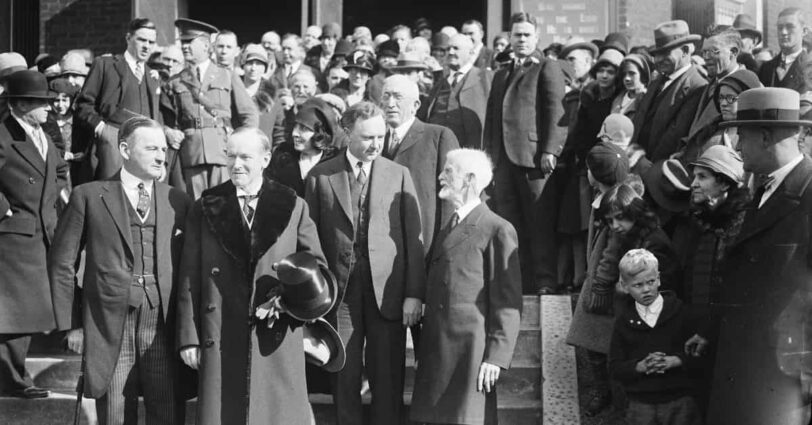I wrote this article in Japanese and translated it into English using ChatGPT. I also used ChatGPT to create the English article title. I did my best to correct any translation mistakes, but please let me know if you find any errors. By the way, I did not use ChatGPT when writing the Japanese article. The entire article was written from scratch by me, Saikawa Goto.
Introduction
Movies and books covered in this article

Three takeaways from this article
- The background behind the judgment that “rape does not result in pregnancy” was the belief that “pregnancy only occurs when a woman reaches orgasm.”
- The reason why “the winner of the trial is decided by a duel” was believed to be “God protects those who speak the truth.”
- We also live in an irrational “communal fantasy” such as “If in a suit, a tie must be worn” and “Makeup is a social etiquette for adults.”
Self-introduction article


Published Kindle books(Free on Kindle Unlimited)
“The genius Einstein: An easy-to-understand book about interesting science advances that is not too simple based on his life and discoveries: Theory of Relativity, Cosmology and Quantum Theory”
“Why is “lack of imagination” called “communication skills”?: Japanese-specific”negative” communication”
The quotes used in this article are based on notes taken at the movie theater from movies in Japanese and are not direct quotes from the foreign language original movies, even if they exist.
A Story Based on a True Event that Makes Us Rethink “What Kind of ‘Fantasy’ are We Living in?”
Reportedly, this movie is set in the year 1386. I’m not sure how much detail about “true events” from that time are accurately recorded. Nonetheless, the movie “The Last Duel” raises questions that cannot be ignored even by those of us living in modern times.

“Communal fantasy” regarding “rape does not result in pregnancy”
The formation of a society for human beings to live in means that some kind of “communal fantasy” is created there.

A clear example is “money.” Even now that electronic payments have become widespread, we still look at coins and bills and feel that they have “value.” However, even a 100 dollar bill is nothing more than paper in reality. The reason why we think it has “value” is because all of us who make up society feel that “100 dollar bills have ‘value.'”

“Money” is such a common part of our daily lives that we have even forgotten that it is a “communal fantasy”. This suggests that there are many “communal fantasies” that we unconsciously believe in society. We might be collectively believing in “surprising things” without realizing it, like the idea that women with tooth blackening were considered beautiful in Japan before the Edo period. In the United States, slavery would be given an example.

This movie, set in ancient France, vividly depicts the differences in “communal fantasies” that people believe in by portraying a time when social norms were vastly different.
For example, a character in a courtroom scene might make this argument:
Women cannot get pregnant from rape. This is a scientific fact.

Let me explain the context of this statement and write about the “communal fantasy” of the time.
In the movie “The Last Duel,” there are three main characters: the knight Carrouges, Carrouges’ friend and squire Le Gris, and Carrouges’ wife Marguerite. In the story, Marguerite accuses Le Gris of rape, and Carrouges sues Le Gris.
At the time of the incident, Marguerite had been married to Carrouges for five years but had not conceived a child. She consulted a physician, who asked her this question:
Do you experience orgasm during intercourse with your husband?
From this scene, we can see that at the time, there was a “communal fantasy” that during sexual intercourse, women would become pregnant only if they reached orgasm, which was considered a “scientific fact.”

And that is why the claim “rape does not result in pregnancy” hold. Since it can’t be to climax in rape, of course it doesn’t get pregnant.
This scene was the most surprising and interesting point in the film. I say “interesting” because it made me deep think, “How did such a ‘communal fantasy’ come about?”


Although it is not explicitly stated in the movie, the audience will probably feel that “the reason why Marguerite did not become pregnant was due to her husband Carrouges”. When we think about it logically in modern times, that’s the only plausible explanation. However, it would have been difficult to accept the idea that “a man is responsible for infertility” at that time. According to the common sense of the time, Marguerite was treated as her husband’s property. So, even in the case of “rape,” Marguerite herself could not bring a lawsuit, and it was up to her husband Carrouges, who had suffered “damage” to his “property as a wife,” to bring the case to court. It was an era where women’s position was overwhelmingly low compared to now, so it is unlikely that the idea that “a man is responsible for infertility” would be accepted.

However, some sort of reasoning had to be made for “why women weren’t getting pregnant.” Therefore, I felt that the idea of blaming women, saying “it’s because they haven’t reached orgasm,” was born. And this logic was also transferred to the idea that “women can’t get pregnant from rape,” which created situations like Marguerite’s.
Also, the main theme of this movie, “trial by combat,” can be said to be a “communal fantasy” in itself.
“Trial by combat” is a system where “the outcome of a trial is decided by the outcome of a duel.” Even if I explain it this way, it’s still incomprehensible, but such reasoning was once commonplace.

The trial in which Carrouges and Le Gris determine the outcome through a duel is, of course, the one I explained earlier about whether “Le Gris’s actions were rape or not”. In other words, “If Carrouges wins, Le Gris is judged to have committed rape, and if Le Gris wins, he is judged not to have committed rape.”
Of course, this kind of story would be incomprehensible. From today’s perspective, it is naturally lead to such an impression.
However, this idea was considered correct at the time because the concept of “God protects those who speak the truth” existed. The reasoning was that “those who fought and lost were not protected by God. That is proof that they were lying.”

At one point, Carrouges stated,
I am not appealing to the king, but to God.
He wanted judgment by God rather than by human decision. The idea of “God protects those who speak the truth” was a communal fantasy, and everyone accepted the trial by combat because of it.

From a modern perspective, it may seem like an absurd story. However, can we really dismiss it so easily?
We May Not be Aware of it, But We Also Live in a “Strange” Communal Fantasy.
We too are living in a communal fantasy that might make people from another time period say, “Huh?”

For example, a necktie would be just that. It is required for the “proper attire for men,” but I don’t think there are many fashion items that have less “functionality” than a necktie. I don’t have many opportunities to realize this because I don’t work in a job where I wear a suit on a regular basis, but when I do wear a suit, such as for weddings or funerals, I can’t help but think, “What does a necktie exist for?”
If it were a fashion item that could be worn by preference, it would be one thing, but neckties are generally recognized as something that “must be worn.” This would be probably a “communal fantasy” that people from another era would not understand.

There are similar points to makeup for women. Of course, there would be women who wear makeup of their own volition, but on the other hand, there are opinions in society that “as a working woman, you should wear makeup at a minimum (At least, in Japan it is).” It seems that “only women’s” makeup exists as a “manners.” This can also be called a “communal fantasy” that is not well understood.
We also live in such “communal fantasies.” Even if we feel uncomfortable with them, we cannot easily choose to “not wear a tie when wearing a suit” or “go to work without makeup.” If so, we should never laugh at judgments such as “women can’t get pregnant from rape” or “the claim of the winner of a duel is correct.”

During the Edo period in Japan, it is said that public baths were mixed-sex. We might be surprised to hear that. We may be doing the same thing. In other word, that’s what it means that people 500 or 1000 years in the future may be astonished to hear that such a “communal fantasy” existed in the early 2000s.
These kinds of communal fantasies are pervasive throughout society and have become so ingrained in our daily lives that it is difficult to remove the sense of “common sense” associated with them. However, when we judge something as “right” or “wrong,” it is important to be aware that we may be basing our judgments on “communal fantasy” which has only such an unstable foundation.

If we base our judgments on the false “communal fantasy” that “women only get pregnant when they reach orgasm,” we may reach the false conclusion that “pregnancy does not occur in cases of rape.” We must be aware of the possibility that we are repeating the same mistakes in our daily lives.

I feel that this is also a movie that can help us become aware of such consciousness.

Content Introduction
In the movie’s climax, a trial by combat takes place, which was the legally recognized last trial by combat in France that took place on December 29, 1386. The story leading up to the trial is told from the perspective of three characters: Carrouges, Le Gris, and Marguerite, with each perspective showing the events leading up to the trial by combat. It is difficult to explain in words, but the story is structured such that the events before the trial by combat are first shown from Carrouges’ perspective, then retold from the perspectives of Le Gris and Marguerite.

Here, let’s delve into Carrouges’ perspective on the story.
Carrouges and Le Gris are not only close friends but also comrades who fight together on the battlefield. However, unlike Carrouges who has no choice but to wait for his father, who is the lord of the castle, to be replaced, Le Gris is an important figure who is highly regarded by Count Pierre, the lord of the region, and has been entrusted with important roles despite being a knight.
Carrouges decides to marry Marguerite, the daughter of Thiboville, who is known for betraying the king. As part of her dowry, Carrouges was supposed to receive an area including land called Aunou-le-Faucon, but for some reason, the land was determined to be owned by Le Gris. Dissatisfied, Carrouges decides to sue Count Pierre. However, this action backfires and he receives unexpected retaliation from Count Pierre.

Carrouges and Le Gris had various circumstances that changed their relationship into something that could only be described as “used to be best friends.”
One year had passed since the humiliating incident for Carrouges, and he had the opportunity to reunite with Le Gris. He decided to accept Le Gris’s invitation to join him and his wife Marguerite. Later on, Carrouges went on an expedition and left the castle unattended for a while. When he returned, he received a shocking confession from his wife:
She had been raped by Le Gris.

Carrouges thinks. Le Gris, who is favored by Count Pierre, would likely not be found guilty in a normal trial. Even appealing to the king would probably not help. So, Carrouges decides to invoke “trial by combat” and prepares for it.
Marguerite, who didn’t know much about “trial by combat”, learns during the trial that “if Carrouges loses the duel, it will be confirmed that Marguerite lied, and she will be burned alive.” The situation is already in motion. She can only pray that her husband wins the duel.

Impression

The feature of the movie “The Last Duel” is that it “revisits the same story from the perspectives of three different characters,” as I mentioned in the synopsis. However, I find it hard to say whether this structure was the best choice for telling this story. The surprises and revelations that come from depicting the story from three perspectives were not as many as I had expected, and of course, retelling the same story three times makes the movie longer. It’s not that the movie was boring, but I felt that a different structure could have been just as good.
The highlight of the movie was the duel scene depicted at the end. Just watching the visuals was enough to feel the fear and tension brought on by the clash of bodies, which can only be described as a hand-to-hand combat, was simply breathtaking.

The film features a famous actor, whom even someone like me who is not familiar with actors knows, giving a fantastic performance, and overall, I think it was great.
Conclusion
Looking at it from a modern perspective, what impressed me was how Marguerite’s position as a woman was too weak. The scene where Carrouges’ mother (Marguerite’s mother-in-law) doesn’t support Marguerite, among other things, was a clear example of the difficulty that women have in collaborating with each other. Of course, the reality that women cannot collaborate with each other exists in various situations even in modern times, but I felt once again the harshness of a time when women’s rights were not recognized overwhelmingly.

Published Kindle books(Free on Kindle Unlimited)
“The genius Einstein: An easy-to-understand book about interesting science advances that is not too simple based on his life and discoveries: Theory of Relativity, Cosmology and Quantum Theory”
“Why is “lack of imagination” called “communication skills”?: Japanese-specific”negative” communication”







コメント